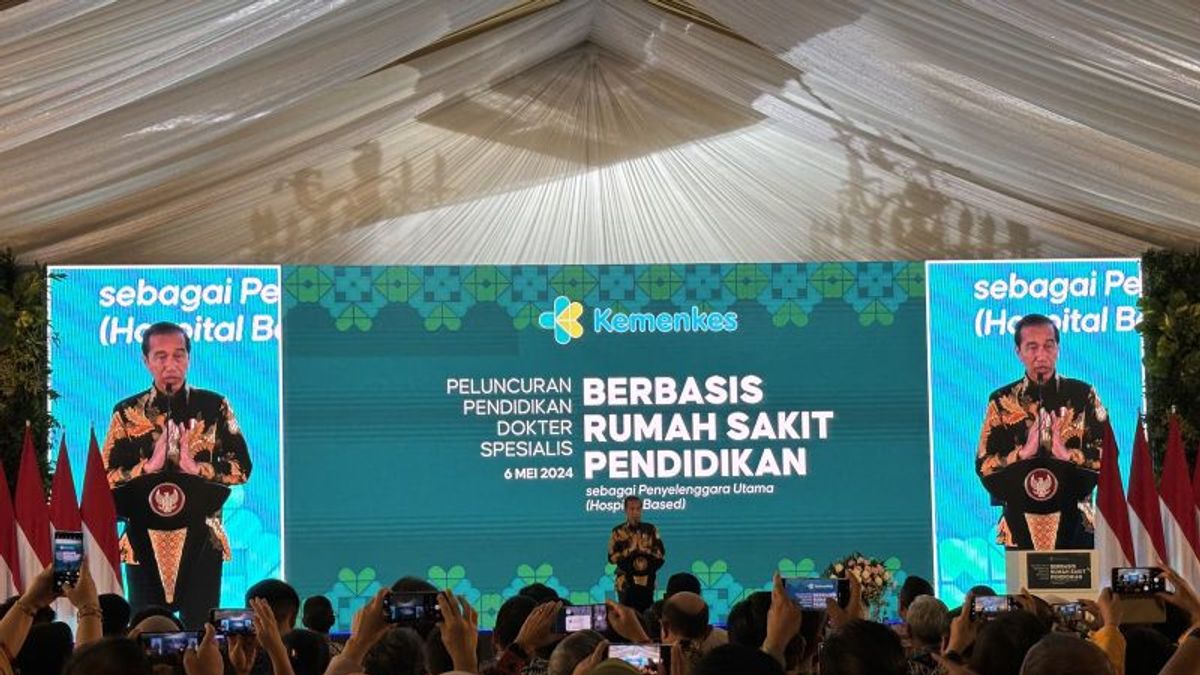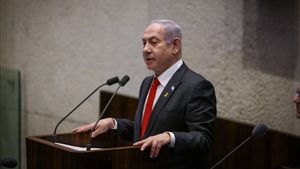JAKARTA - President Joko Widodo (Jokowi) said the fulfillment of the needs of specialist doctors would support Indonesia's demographic bonus, which is expected to occur in the next 10-15 years. He said most doctors were only concentrated on the island of Java.
In the inauguration of the Education Program for Main Organizing Education Hospital-Based Specialist Doctors (RSP-PU) at Harapan Kita Hospital, Jakarta, Monday, President Jokowi said that when the demographic bonus is realized, Indonesia will have 68 percent of the population of productive age.
"But 68 percent of the population of productive age will be useless if their health is not good. Therefore, we really have to prepare and plan this (demographic bonus)," said President Jokowi.
In handling the lack of specialist doctors and doctors in Indonesia, the President emphasized that breakthroughs need to be made, including by mobilizing 24 medical faculties in Indonesia and 420 government hospitals to produce more doctors.
The reason is, Indonesia is only able to produce 2,700 specialist doctors per year while the current need reaches 29,000 specialist doctors.
"This means that (the number of specialist doctors) is very lacking. Plus the uneven distribution. On average, specialist doctors are in Java and in cities, 59 percent of specialist doctors are concentrated on the island of Java," said President Jokowi.
"Therefore, there must be a breakthrough. We must dare to start," he said.
On that occasion, the Head of State explained that the ratio of doctors in Indonesia was still around 0.47 per 1,000 population, while the World Health Organization (WHO) said that each country has a ratio of 1 doctor per 1,000 so that a doctor in a country serves 1,000 residents.
The current achievement of the ratio of doctors, said Jokowi, puts Indonesia ranked 147 in the world.
(This ranking) is very low. In ASEAN we are ranked 9th, meaning that they are in the top three but from below. These are the problems of numbers that we have to open as they are," he said.
The Ministry of Health (Kemenkes) through the Health Transformation program facilitates 420 hospitals, out of a total of 3,000 hospitals in Indonesia, to educate more specialist doctors and doctors outside the university line.
According to the Minister of Health (Menkes) Budi Gunadi Sadikin, the program will prioritize local male doctors as participants in specialist doctor education at educational hospitals.
"Later, the fulfillment of specialist doctors to all regions will be carried out together, both education through universities, and hospital-based education," said the Minister of Health separately.
At this initial stage, said Minister of Health Budi, there were six specialist medical study programs at six major education provider hospitals, namely eye specialists, heart, child, nerve, orthopedic, and oncology.
SEE ALSO:
The six educational hospitals in question are Mata Cicendo Hospital, Soeharso Ortopedi Hospital, National Brain Center Hospital (PON), Dharmais Cancer Hospital, Harapan Kita Hospital, and Harapan Kita RSPD.
By running the RSP-PU-Based Specialist Specialist Education Program, he continued, it is hoped that Indonesia can shorten the fulfillment of the needs of specialist doctors from 10 years to about five years.
The English, Chinese, Japanese, Arabic, and French versions are automatically generated by the AI. So there may still be inaccuracies in translating, please always see Indonesian as our main language. (system supported by DigitalSiber.id)
















